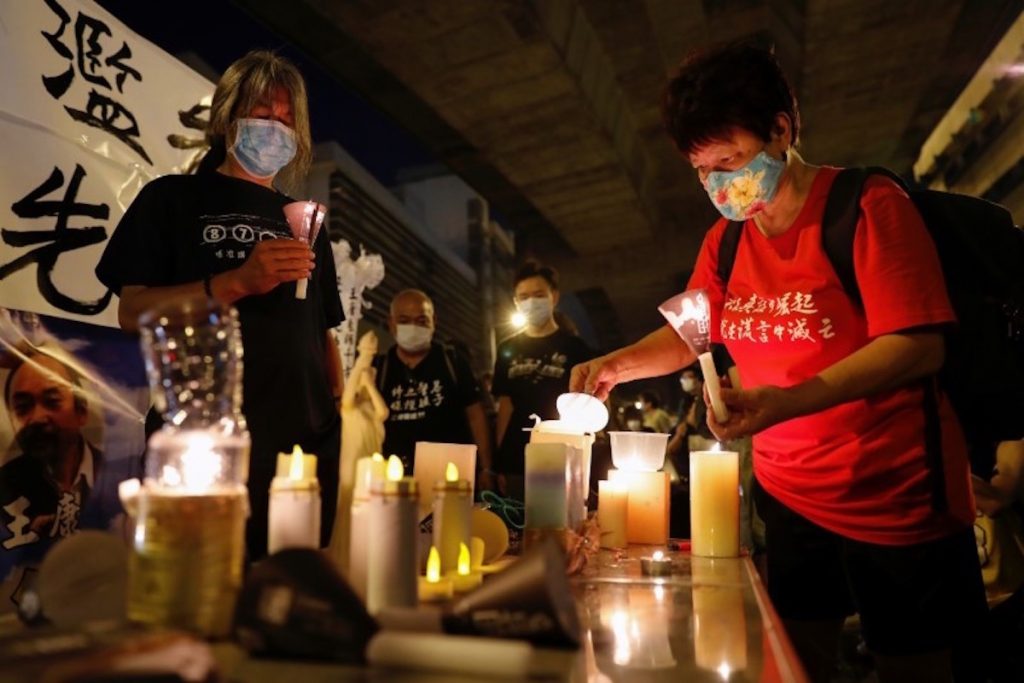
Several churches in Hong Kong will be holding Masses on June 4 to remember those who died in the 1989 Tiananmen massacre.
“For various reasons, we may not be able to speak openly, but we must not forget history,” read an announcement posted on website of the Justice and Peace Commission of the Hong Kong diocese.
“Let us offer the life-giving holy sacrifice of the Mass that the Lord of history may look upon those who died in the spring and summer in the pursuit of truth,” it added.
The announcement listed seven churches that will celebrate Masses for the dead in the evening of June 4 and light candles to remember those who died.
Hong Kong’s incoming Catholic bishop said last week that he will pray for the victims of the 1989 crackdown on pro-democracy protesters, but added that it would depend on the city’s laws if he would be doing it in public.
The Catholic church in Hong Kong has traditionally played an active role in the city’s commemorations of the Tiananmen crackdown. Such activities are banned in China, where the subject is extremely sensitive.
In his first public remarks since being appointed, Bishop-elect Stephen Chow of Hong Kong said there were different ways to commemorate June 4, noting in the past he has participated in public events and at other times he could not attend them.
“I pray, I pray for China, I pray for all those who have passed in 1989, from all walks of life. Whether this year it is possible (to do it in public) it depends on legal requirements.”
The former British colony traditionally held the largest vigils globally every year, having been promised certain freedoms when it returned to Chinese rule in 1997, including rights of expression and assembly.
Last year was the first in which the vigil was banned in the global financial hub, with police citing coronavirus restrictions on group gatherings. This year’s protest is expected to face a similar fate.
Still, tens of thousands of people lit candles across the city in what was largely a peaceful event last June, bar a brief skirmish with riot police in one neighborhood.
Last year’s anniversary struck an especially sensitive nerve, just as Beijing prepared to introduce a sweeping national security law, criminalizing anything China sees as subversion, secession, terrorism or collusion with foreign forces.
This year, the event is particularly awkward for Beijing, which celebrates the 100th anniversary of the Communist Party on July 1.
Bishop Chow said the city, a strong Catholic beachhead on the edge of a mainland China under officially atheist Communist Party rule, could attempt to heal its divisions through dialogue, saying “unity is not the same as uniformity.”
“How can we bring healing? … I’m listening. It’s fundamental.”
Source: Licas Philippines
0 Comments